Watts Interview – Denial and Reality Mix like Oil and Water
Posted on 14 March 2013 by dana1981
A website called Oil Price recently conducted an interview with climate contrarian Anthony Watts. In the interview, Watts tries to portray himself as the reasonable skeptic in the middle of the climate 'debate'. Watts claims that he's a "lukewarmer" (a term which frankly just refers to people who ignore inconvenient evidence), trying to position himself between the denialists and the climate scientists.
However, as Richard Alley has explained, in reality climate scientists are the reasonable skeptics in the middle, with denialists at one extreme and doomsayers at the other. The sheer number of myths Watts manages to jam in his Oil Price interview confirms Alley's view. In fact, the interview offers us a case study in the tactics climate denialists use to misinform the public.
Denial Strategy #1: Self-Contradictory Arguments are Welcome
The first two interview answers reveal one of the most common flaws in climate contrarian arguments: self-contradictions. First Watts (wrongly) suggests that global warming 'proponents' expect the warming to happen in a steady, linear fashion, but then a few moments later admits that the climate is much more complex than that (which, believe it or not, climate scientists realize).
Image created by John Cook
In reality, climate scientists are well aware that a number of different factors influence short-term global surface temperatures. The climate system is noisy, and this is reflected in climate model temperature projections, as illustrated in this simple animation made by Ed Hawkins.
Denial Strategy #2: Rewriting History
In the same quote, Watts has asserted that 'proponents' switched from using the term "global warming" to "climate change" because it "can be liberally applied to just about anything observable in the atmosphere."
In reality, the term "climate change" has been used for decades, including in Gilbert Plass' seminal 1956 study 'The Carbon Dioxide Theory of Climatic Change'. A Google Scholar search reveals that the term 'climate change' was in use before the term 'global warming', and has always been the more commonly-used term in scientific literature. There is also an organization you may have heard of called the Intergovernmental Panel on Climate Change, formed in 1988.
In fact, perhaps the only individual to actually advocate changing the term from 'global warming' to 'climate change' was Republican political strategist Frank Luntz in a controversial memo advising conservative politicians on communicating about the environment:
It’s time for us to start talking about “climate change” instead of global warming and “conservation” instead of preservation.
“Climate change” is less frightening than “global warming”. As one focus group participant noted, climate change “sounds like you’re going from Pittsburgh to Fort Lauderdale.” While global warming has catastrophic connotations attached to it, climate change suggests a more controllable and less emotional challenge.
As usual, Watts has got the facts completely backwards and is trying to rewrite history.
Denial Strategy #3: Damage Control by Misrepresenting Data
A new study published in Science by Marcott et al. (2013) has effectively extended the so-called 'hockey stick' graph and found that current temperatures are higher than they've been for 75% of the past 11,500 years, and the current rate of warming is faster than at any point during that timeframe.
This is a very inconvenient result for climate contrarians, who have made attacking the 'hockey stick' one of their prime objectives. This is evident from the six separate posts on Watts' blog (to date) desperately trying (and failing) to find a fundamental flaw in the results of Marcott et al. Watts rehashes one of those attempts in his interview:
"the climate of the past has been warmer than today as well as colder as indicated by ice core isotope records."
The link goes to a plot of temperatures not for the whole planet or northern hemisphere, but in one isolated location – central Greenland – which conveniently ends over 150 years ago. Watts' x-axis is incorrectly labeled 'Years Before Present (2000 AD)'; in reality, "Present" in this Greenland ice core data is 1950, and the last data point is 95 years before that, in 1855. Thus Watts' graph leaves out about 1.5°C of Greenland warming over the past 158 years.
Watts' Graph:
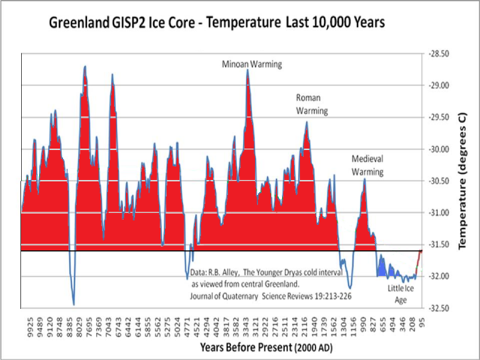
Same data including the past 150 years (Click the image for a larger version):
Watts was also aware of this error, because I notified him of it in a comment on his blog post. However, either he or his moderators deleted the comment.
Denial Strategy #4: Exaggerate Uncertainty
Inflating uncertainty is a common tactic amongst climate contrarians, and Watts tries this strategy in his interview.
"Predicting an outcome of a chaotic system over the long term is a very, very big task, one that we’ve really only scratched the surface of."
In reality, making long-term climate projections is easier than short-term projections, which are complicated by the noise in the system. Climate model projections have also been pretty darn accurate so far.
It's also important to note that uncertainty is not our friend. More uncertainty means that the consequences of climate change may not be as bad as we expect, and it also means they may be worse. The only way to argue for climate inaction is if we have certainty that the consequences of climate change will be small. As Watts has admitted, we do not have that certainty, and in fact the body of scientific evidence strongly indicates the consequences of climate change will be bad.
Denial Strategy #5: Peddling Blog "Science"
Watts also peddles the myth that the surface temperature record is unreliable, thus arguing that human-caused global warming is smaller than climate scientists believe.
"my recent study (preliminary) shows that not only is the deployment of weather stations faulty in siting them, but that the adjustments designed to solve those issues actually make the problem worse ... the trend from the compliant weather stations that don’t have heat sink effects--can be attributed to CO2. That value appears to be half of what NOAA claims."
The "preliminary" paper in question has not even been submitted to a journal, let alone been subjected to the peer-review process, and contains several fundamental flaws which completely undermine the conclusions that Watts asserts in this quote.
In a previous interview, Watts criticized Richard Muller of the Berkeley Earth Surface Temperature team for discussing his project results before they had passed peer-review:
"Unfortunately he has not succeeded in terms of how science views, you know, a successful inquiry. His papers have not passed peer review."
Perhaps that Anthony Watts should have a talk with this Anthony Watts.
Denial Strategy #6: Downplay Climate Impacts
Watts somehow manages to downplay the intensity of Hurricane Sandy, which was the second-most energetic hurricane on record, with the second-largest property damage cost among Atlantic hurricanes at about $75 billion.
"The idea that Hurricane Sandy, a minor class 1 storm, was somehow connected to CO2 driven “climate change” is ludicrous"
If he ever visits New Jersey or New York, we would advise Watts not to refer to Hurricane Sandy as "a minor storm."
Human-caused global warming also indisputably amplified the damage caused by Hurricane Sandy. Higher sea levels mean larger storm surges, warmer oceans mean stronger hurricanes, and more moisture in the atmosphere means more rainfall and thus more flooding.
To deny that CO2 amplified the impacts of Hurricane Sandy is ludicrous. And as Kevin Trenberth has discussed, all weather now occurs in a climate that humans have altered.
"it is important to recognize that we have a “new normal,” whereby the environment in which all storms form is simply different than it was just a few decades ago. Global climate change has contributed to the higher sea surface and sub-surface ocean temperatures, a warmer and moister atmosphere above the ocean, higher water levels around the globe, and perhaps more precipitation in storms."
Denial Strategy #7: Misrepresent Successful Climate Predictions
Climate contrarians love to claim that climate predictions have failed.
"catastrophic predictions of the future just haven’t held up when you look at the observed data compared to the early predictions."
This particular quote is rather bizarre, because climate scientists and models have not predicted catastrophic effects would occur by 2013. They have predicted that the planet would warm, ice would melt, sea levels would rise, the atmosphere would hold more moisture, and a whole slew of other changes which have indeed occurred. In fact, climate scientists have under-predicted many key climate changes.
If you want to see some bad predictions, just look at some made by Watts and other climate contrarians. They have been far less accurate than those made by climate scientists.
Denial Strategy #8: Misrepresent Basic Economics
Ultimately Watts admits his contrarian motivation.
"many of the “solutions” that have been proposed are to increase taxes on energy"
In reality, the proposed solutions in question put a price on carbon, not energy. There are plenty of low-carbon energy sources which would not be impacted by a carbon price.
The fact that the cost of the damage caused by carbon emissions via climate change is not reflected in their price is a failure of the free market. There is a high cost associated with this damage, but if that cost is not reflected in the prices of the products causing those greenhouse gas emissions, consumers can't factor the cost into their purchasing decisions. This is economics 101. Failing to put a price on carbon emissions is effectively a massive subsidy; anybody who supports a free market should support pricing those emissions.
Denial Strategy #9: Misrepresent Climate Solutions
Of course Watts includes the obligatory disparaging of renewable energy.
"Wind and solar require fossil fuel backups to manage their inconsistent energy production, which changes with the whims of weather, so they really aren’t making much of a dent."
When solar energy is meeting up to 50% of Germany's electricity demand, does that count as 'not making much of a dent'?
In reality there are several ways renewable energy can supply consistent energy production without necessarily needing fossil fuel backup. And whenever the wind is blowing and/or the sun is shining, renewables are significantly reducing our fossil fuel consumption and greenhouse gas emissions.
Denial Strategy #10: Cherrypick the Noise
Finally, Watts completes the interview by once again cherrypicking the noise in the data.
"Given that CO2 has a logarithmic, not linear effect in returning a portion of outbound LWIR energy to Earth’s surface, slowing the transfer to the top of the atmosphere, this suggests that a crisis of temperature from a doubling of CO2 is not likely. This low sensitivity near saturation is supported by the lack of observed warming at the surface for more than a decade."
This argument is just very, very wrong. There was a rapid warming of surface air temperatures in the 1990s, and a slower surface warming in the 2000s. Does Watts really think that the greenhouse effect suddenly became saturated overnight?
In reality there was a preponderance of El Niño events in the 1990s and a preponderance of La Niña events since 2000. The former cause short-term surface warming, the latter cooling. If we just look at the surface warming trend for El Niño years, for La Niña years, and for neutral years, in each case the trend is very consistent.
More importantly, only about 2% of global warming goes into heating the atmosphere. About 90% of global warming goes into heating the oceans, and when we account for all of the data, it's clear that global warming continues unabated. Only considering the convenient bit of data is just another cherrypick.
True Skeptics Consider all the Data
The lone constructive result of this Oil Price interview is that it has provided us with an excellent case study in the difference between skeptic climate scientists and extreme climate denialists. Real skeptics consider all the data, while denialists cherrypick and misrepresent data, rewrite history, and give more weight to blog 'science' than peer-reviewed science, all because they oppose the solutions to human-caused global warming.































 Arguments
Arguments






















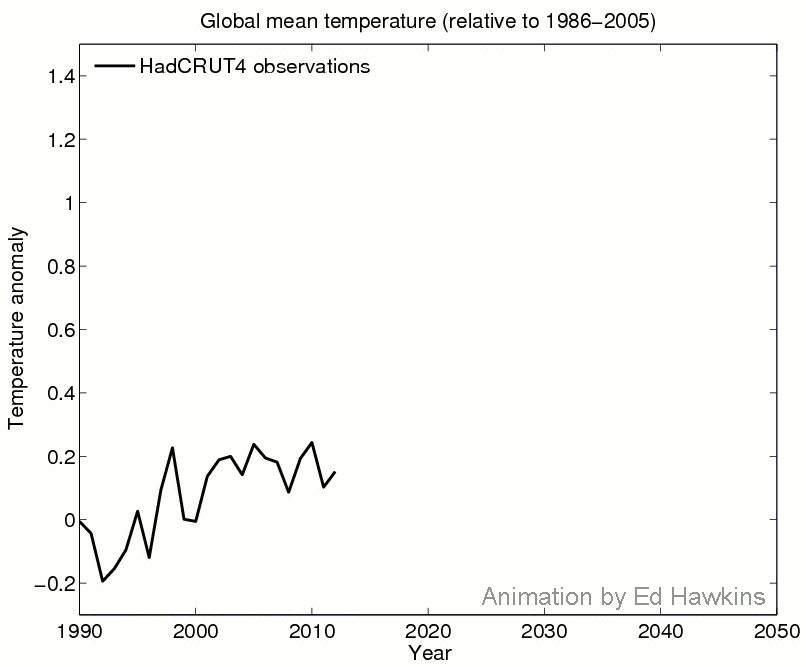
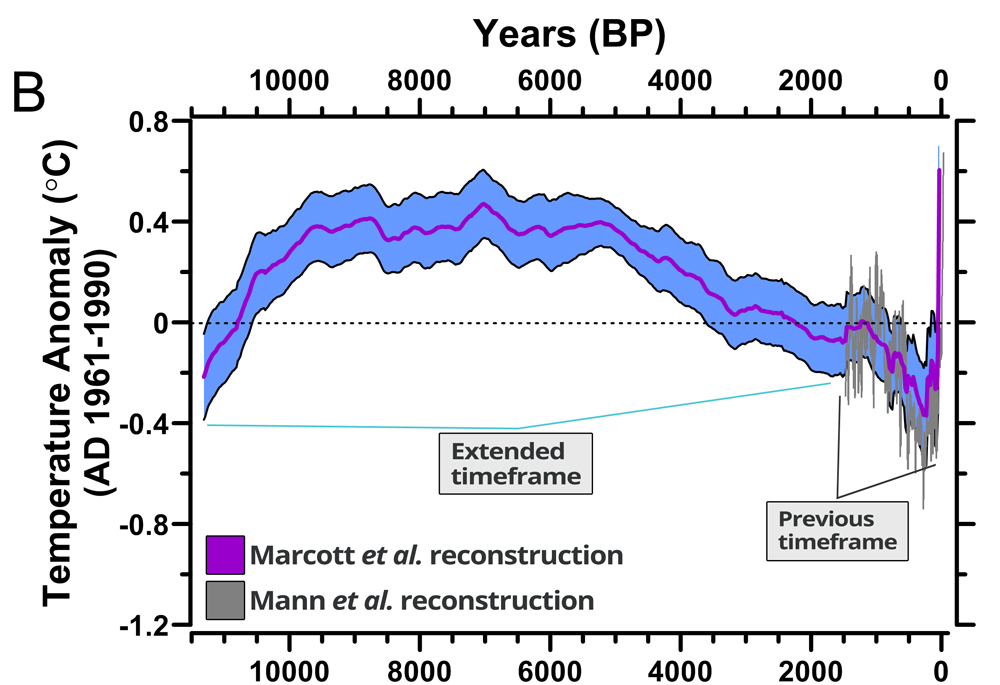
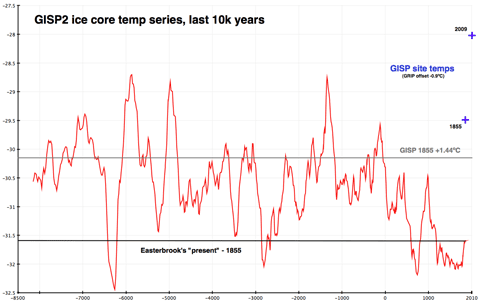
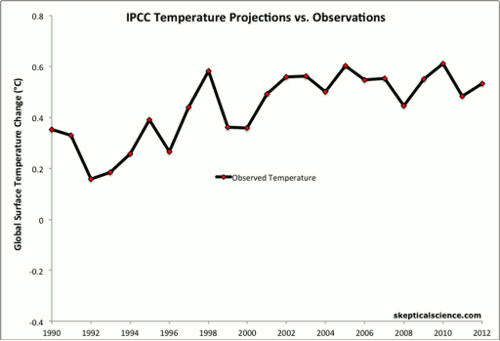
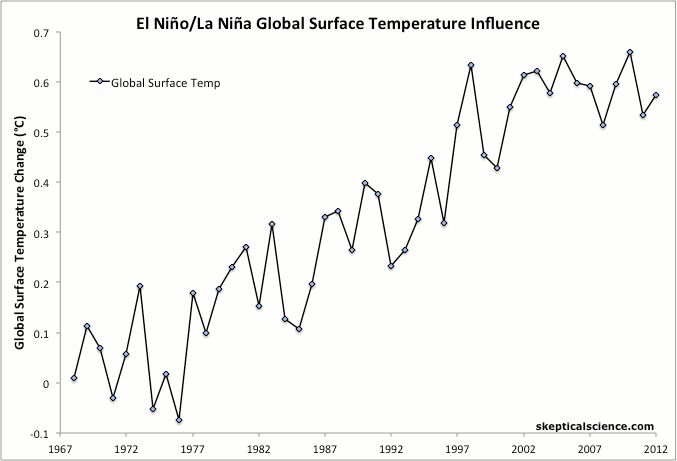
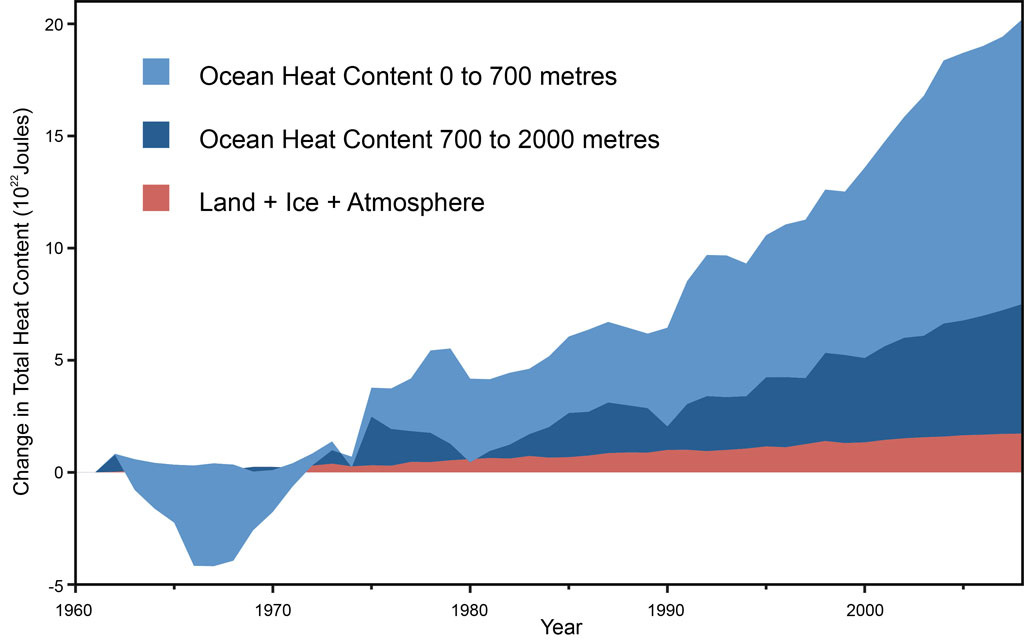









Dana@99 Thanks for the reply Dana but what interest is an interview of Anthony Watts to those that read Skeptical Science. I accept yhat your answer could, very reasonably. point to the number of comments generated but these by and large, are merely supporting and confirming one another's opinions so I'm not sure what it was that was hoped to be gained. Personally I didn't read much of it for the little I did read added nothing to my understanding of climate change and as Anthony Watts is hardly a climate scientist, agreed he doesn't claim he is, his views carry little weight in the mainstream community of climate scientists. Sure his shortcomings, at least those perceived to be shortcomings by those that wrote the piece, were well aired but to what avail? Those who believe what Watts says are unlikely to read this post and so will continue on in their ignorance while those who don't believe what Watts says will have their beliefs confirmed. Sorry , still don't get the point of it
Ray - If you look at the stated purpose of SkS (About Skeptical Science), you will see that correcting the misinformation of climate denial is its core. Watts certainly isn't a climate scientist, his (mis)information is almost invariably incorrect, and even those defending him can't claim good quality - yet he gets air time on Fox, and considerable traffic on his website. He is a serial presenter of denial myths who has an audience.
It's entirely appropriate to point out the contradictions and fallacies when someone like Watts is making public statements.
Thanks for the reply Dana but I still don't get it. (-snip-)
Ray, you seem to assume that there are two groups of people: those who trust Watts and those who trust SkS. No. WUWT is allegedly a popular blog. It also (somewhat systematically) feeds a number of mainstream news sites. Watts influences public opinion. Not a day goes by that I don't get someone out in the internets trying to feed me a link to WUWT in defense of some bizarre claim (e.g. "16-year trend = no global warming"). Watts even made it onto PBS--not because he's an expert, but because his site is popular. It is a primary source of the faux debate. WUWT misinforms the democracy. Watts could care less about scientific progress. His goal is to smear grease on the glass between science and political will. Note that SkS is a defensive site. Little original science is published from its regulars. Instead, commenters present, defend, and argue about the published science. The linkage to the published science on this site blows away--a massive understatement--that of any other climate site on the net. WUWT publishes a great deal of original "science" that is strictly designed to attack mainstream climate ideas perceived as foundational (e.g. surface temp trend explained not by CO2 but by unknown physical mechanism with 65-year cycle). The weak methodologies of these publications are hidden by biting and inflammatory rhetoric. And it works really, really well. Very little published climate science is linked at WUWT--except when it's the target.
Ray, to restate what I think DSL's main point was, your mistake is that you think there are two types of people, those who trust Watts and those who don't. But those two groups make up a very small segment of the population. There is always a much larger segment of the population outside of those groups; people who are unfamiliar with the climate issues, those who are uncertain, those who are uninvested, and more.
SkS is meant to serve exactly those people. SkS provides a source of reliable and consistent information, based on the actual state of the science, rather than poppycock and nonsense fabricated to give an illusion of truthiness.
So what purpose does this post serve? It exposes Watts' hypocrisy and idiocy to people who might otherwise stumble into Watts' site and be led to believe that the guy has a clue about anything, or is to be trusted in any way.
This is to the Moderator DB My sincere apologies for my post 103 and your comments are perfectly justified. I posted a comment early this morning (see 101) but it did not appear as it usually does. I rewrote and reposted a little later (post 103) and again the post did not appear. My thinking then was perhaps the site does not permit more than 100 posts so that is why they "vanished" and I left it that. Again my apologies and I can well understand you taking me to task for my second post
You know, given the way that Watts and the rest of the denialati are trending towards claiming that, 'maybe there were magical temperature spikes of unknown origin in between the proxy data points and therefor maybe the current warming is just another of those magical spikes of unknown origin' I'd love to see a study showing a future temperature projection for 'immediate 0 emissions' and 'continued reliance on fossil fuels until they run out'. Both those should show the current temperature increase, however high it goes, being effectively 'permanent' and indeed slowly increasing as slow feedbacks (e.g. land albedo) cause mild warming to continue for hundreds to thousands of years. Thereafter temps would decline only at a very slow rate, similar to what Marcott showed for the past 8000 years per AGW, for thousands of years into the future.
That seems to be the part that they are still desperately trying to keep from the general public... the fact that the current temperature increase isn't just a brief spike that we can easily reverse. Rather, we have already vastly increased global temperatures for thousands of years into the future and are now just determining how inhospittable we will make the planet.
Basically, the problem with all the temperature charts is that they stop at 'now'. We need people to understand that 'now' is the best it is going to be for hundreds to thousands of years.
For what it is worth, from an email to A Scott:Scott,
I also have been a little delayed in responding, the reason being I have been working on a comment at SkS, of which more later.
I continue to believe you are trying too hard to find a problem. The reason for having linguistic conventions is so that you do not have to continuously restate details. That is, the convention of year zero BP exists so that scientists do not have to restate the start year every time the report on a new proxy or dating. It follows that if such a convention exists (and it does), if no further information is provided, that is sufficient reason to consider the ages to be stated relative to 1950.
However, seeing you want to be obtuse (I'm sorry, but there is no better word), the facts are:
1) Meese et al 1994 established the standard chronology of the GISP2 icecore, in which "The column Ice Age gives ages in years before 1950 AD, where "0" refers to summer, 1950." The chronology is called the Meese/Sowers chronology because it is correlated with the Sowers et al 1993 chronology of Voskok. That is the standard chronology used thereafter and reference to the Meese/Sowers chronology does not represent a revision after publication for any publication after 1994.
2) Cuffey and Clow 1997 used the Meese/Sowers chronology, including the use of the 0 BP = 1950 convention beyond doubt, given that they state that "the age according to Meese/Sowers, given as years before 1950 AD. "
3) Alley 2000 use the same chronology as Cuffey and Clow. We know this because:
a) They do not mention using a different chronology for the data obtained from Cuffey and Clow, a severe lapse if they had in fact altered the chronology;
b) Present = 1950 is the standard convention, and using a different convention without stating so would have been a significant lapse;
c) Alley has confirmed the use of the Cuffey and Clow dating when inquiries were made;
d) Comparison of the smoothed Cuffey and Clow accumulation rates with the reported Alley et al accumulation rates provides a best match on the assumption that Alley et al used the convention that 0 BP = 1950;
e) Comparison of the Alley et al temperature reconstruction with the smoothed GISP2 d18O values gives the best match if you assume Alley et al used the standard convention; and
f) The youngest gas age (indicating closure of the firn under compaction) for the GISP2 core is 89 BP, corresponding well with Alley's earliest date of 95 BP.
I believe the last is relevant because prior to the closure of the firn, water vapour in the atmosphere can penetrate the firn contaminating the data. Once the firn is closed, the relative mass of ice and water vapour ensures the data is dominated by the former.
Against this the only counter evidence is a NOAA page not constructed by Alley which is known to have at least one wrong date. Specifically, it says the start date of the data is -107,175 AD, whereas the earliest date in the data repository is 49981 BP (or 48,032 BC). Given that the NOAA page is out by over 50 thousand years for the start year, are you really going to rest your case on a 145 year discrepancy for the end year? On top of that, you have Easterbrook's claims, when he is not in the positon to know; and the caution of Alley's expression - which is not evidence that it is wrong.
This brings me to the SkS post which bypasses the whole Easterbrook vs the evidence conundrum. In 2011, Kobashi et al created a new reconstruction of GISP2 temperatures using different data from the same ice core. Importantly, they brought the reconstruction up well beyond 1950, and included a direct comparison with Box 2009's reconstruction of site temperatures from regional weather data, and with the automatic weather station on site for the last two decades. In that post, I overlay Alley 2000 with Kobashi 2011, and the overlay clearly shows that onsite temperatures increased by just under 1.5 C between the end of the Alley 2000 data and the end of the 20th century. It further shows that the terminal date in Alley 2000 is in the 19th century.
You may want to do that comparison yourself (along with those mentioned in 2 e & f above), but having done so, surely that is the end of the matter.
Except (a prediction here), it won't be for Easterbrook. He will continue using a single proxy from a highly variable region in preference to using a large number of proxies from across the globe. He will continue to insist that (at best) only the global average temperature increase should be added to his terminal data rather than the actual temperature increase at the site as shown by regional thermometers and by a new analysis of the GISP2 data. Possibly he'll go one worse and insist on using the Greenland average air/firn temperature difference rather than the site specific difference as determined by data. All in all, he will continue to insist that Alley 2000 shows that modern temperatures (early 21st century) are very low relative to the Holocene average.
I make the prediction with considerable confidence because he has been making the same refuted argument for many years, even though I know he has been advised of his mistakes. He is not interested in being accurate - he is interested in selling a message.